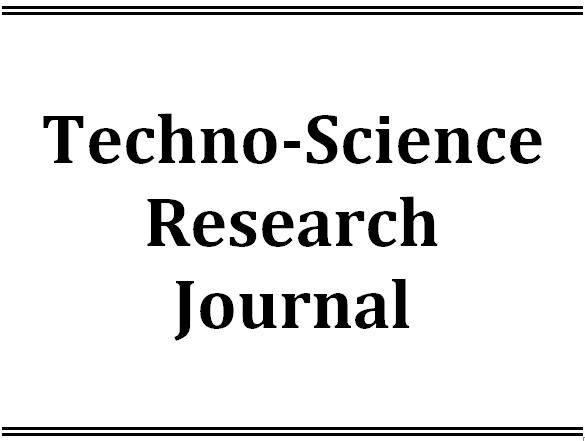Latest Issue
Empowering Education with Online Khmer Handwritten Text Recognition for Teaching and Learning Assistance
Published: August 30,2025Undergraduate Student Dropout Prediction with Class Balancing Techniques
Published: August 30,2025Status of Seawater Quality at Koh Rong Island, Sihanoukville, Cambodia
Published: August 30,2025Low-Complexity Detection of Primary Synchronization Signal for 5G New Radio Terrestrial Cellular System
Published: August 30,2025Word Spotting on Khmer Printed Documents
Published: August 30,2025Tuning Hyperparameters Learning Rate and Gamma in Gym Environment Inverted Pendulum
Published: August 30,2025Examining Passenger Loyalty in Phnom Penh Public Bus System: A Structural Equation Modelling Approach
Published: August 30,2025Prediction on Load model for future load profile of Electric Vehicle charging demand in Phnom Penh
Published: August 30,2025Economic Study on Integrating PV-DG with Grid-Tie: Case Study in Cambodia
Published: August 30,2025Decentralized Blockchain-based PKI for Patient Identification in the Blockchain Network
-
1. Department of Information and Communication Engineering, Institute of Technology of Cambodia, Russian Federation Blvd., P.O. Box 86, Phnom Penh, Cambodia
Received: August 29,2022 / Revised: / Accepted: October 10,2022 / Available online: June 30,2023
In the chain of the healthcare domain even in the public or private sector of a developing country, there is still much concern about information sharing, security, and privacy, especially for identity management. In Cambodia, currently, the centralized framework for identity management is mostly used, which highly depends on a single trust third-party Certificate Authority (CA) such as the General Department of ICT (GDICT) at the Ministry of Post and Telecommunication for making decisions. The identity of data is owned and managed by the service provider, so the risk might occur once the CA is hacked, the adversary could distribute false certificates with pseudo-identity. This research proposes a decentralized blockchain-based PKI for patient identification in the Blockchain network. It is decentralized, removes the need for having Certificate Authorities (CAs) and Certificate Revocation Lists (CRLs), and supports important functionalities for enrollment, verification, validation, update, and revocation of certificates. As the result, the decentralized identification model that supports the healthcare domain has been proposed in developing countries.

